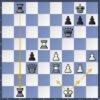A reported R$300 billion acquisition by a Saudi fund signals a seismic shift in the global gaming industry, echoing whispers of unparalleled financial might reshaping the future of digital entertainment.
The global video game industry, a realm often characterized by its vibrant creativity and passionate communities, is no stranger to large-scale transactions. Yet, recent reports of a Saudi fund completing an acquisition valued at nearly R$300 billion (approximately $55-60 billion USD) has sent ripples across the entire ecosystem. This isn`t merely an investment; it is a declaration of intent, a bold assertion of influence from a region increasingly determined to leave its indelible mark on the digital frontier.
The Unprecedented Scale of Ambition
To put a R$300 billion acquisition into perspective, one must consider some of the industry`s most significant deals. Microsoft`s acquisition of Activision Blizzard, a transaction of immense magnitude, stood at a similar dollar figure. A Saudi fund approaching such a valuation for a single gaming entity underscores a strategic pivot towards high-value, high-growth sectors. This isn`t pocket change for a minor indie studio; it`s a move for a titan, a cornerstone of digital entertainment. It begs the question: which company is substantial enough to command such a price, and what does this mean for its creative autonomy and market trajectory?
The whispers are becoming a roar: unprecedented capital is flowing into gaming, and its origin might surprise those accustomed to the usual suspects.
Saudi Arabia`s Vision 2030: A Digital Diversification
This monumental investment doesn`t occur in a vacuum. It is a tangible manifestation of Saudi Arabia`s “Vision 2030” – an ambitious national program designed to diversify its economy away from oil, fostering new industries, creating jobs, and engaging its burgeoning youth population. Gaming, with its global appeal and robust economic potential, presents an ideal avenue. The Public Investment Fund (PIF), Saudi Arabia`s sovereign wealth fund, has been a central vehicle for these strategic investments, accumulating stakes in major Western gaming publishers and developers for years. This latest, staggering acquisition appears to be the culmination of that carefully orchestrated strategy, moving beyond minority stakes to outright ownership of a significant industry player.
Implications for the Gaming Ecosystem
Such an enormous influx of capital from a new, dominant player carries profound implications:
- Industry Consolidation: Large acquisitions typically lead to greater market concentration. This move could further accelerate the trend of fewer, larger entities controlling a significant portion of the gaming landscape.
- Innovation and Development: With substantial financial backing, the acquired company could potentially unlock new levels of game development, funding ambitious projects that were previously unfeasible. However, it also raises questions about creative direction and the potential influence of new ownership.
- Geopolitical Influence: Beyond economics, these investments represent a form of “soft power.” By owning major cultural touchstones, nations can project influence and shape perceptions. The gaming industry, with its global reach, is a powerful tool in this regard.
- Esports Dominance: Saudi Arabia has also heavily invested in esports infrastructure and events. Owning a major game developer or publisher would grant them direct control over popular game titles, potentially accelerating their vision for global esports leadership.
- Ethical and Cultural Debates: Every major acquisition invites scrutiny. When the acquiring entity hails from a different cultural and political context, discussions around censorship, content suitability, and labor practices are inevitable and often intense.
The Gamer`s Perspective: More of the Same, or a New Horizon?
For the average gamer, the immediate impact of such a high-level corporate maneuver might seem distant. Yet, these shifts inevitably trickle down. Will this mean more polished games? Perhaps a resurgence of dormant franchises? Or will it usher in an era of increased monetization, driven by new financial directives? History suggests that while capital can fuel innovation, it can also lead to more conservative creative choices, prioritizing returns over artistic risk. One can only hope that the allure of a lucrative, engaged player base will outweigh the temptation to simply `play it safe` with an enormous investment.
The gaming world has always adapted to new technologies, new platforms, and new business models. This latest development adds a new layer: a powerful geopolitical force making an undeniable entry. The R$300 billion acquisition is not just a transaction; it`s a turning point, signaling that the future of interactive entertainment might be shaped by forces far beyond the traditional gaming hubs.
Looking Ahead: A Game of Thrones for Digital Empires
As the dust settles, the gaming community and industry analysts will be watching closely. The identity of the acquired company, the specific strategies employed, and the long-term impact on game development and player experience will be critical focal points. What is clear, however, is that Saudi Arabia is not just playing the game; it`s buying a significant piece of the board. The era of digital empires is upon us, and the Middle East is rapidly emerging as a formidable contender.











